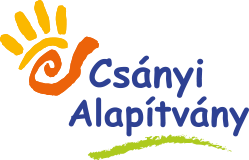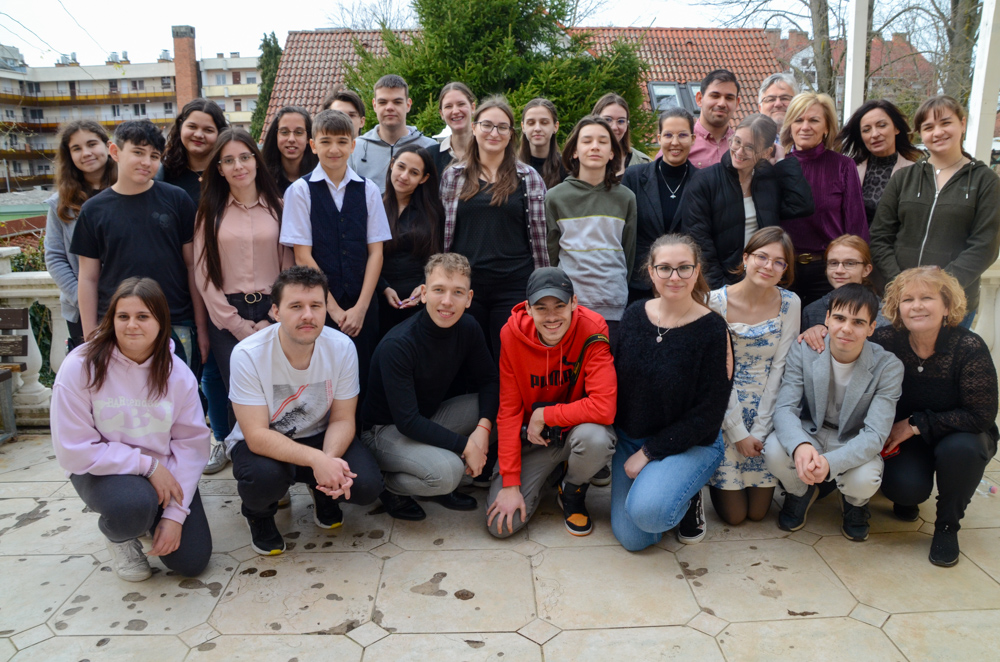
Poem Festival in Kaposvár
Poem Festival in Kaposvár
For the second time, from February 23rd to 25th, we organized the Verse and Prose Recitation Festival in Kaposvár, with the motto “The verse is what needs to be said.” And how true this is; compared to last year’s participation, ten more individuals applied for the festival this year. It seems that reciting poetry is becoming a tradition during this period. Contestants from all over the country participated in this high-quality literary event, with a total of 6 Community Houses represented (Jászberény was participating in the national round of the First Lego League – ed.); participants ranged from sixth graders to high school seniors. Although the theme of the weekend revolved around poetry and nurturing our mother tongue, the three-day program was not solely about recitation. After the Friday evening arrival, there were team-building games, including the creation of “box theaters” from selected poems by the reciters. Following the competition program on Saturday, we listened to an interesting interactive lecture by Dr. Péter Gombos on prosody, and the analysis of Beton.Hofi song lyrics surprised many of us, and we enthusiastically applied what we learned—whether it was the correct prosody rules or their absence—in the lyrics. The Saturday afternoon continued with enjoyable conversations; we interviewed Török Sára, the actress and president of the jury, about theater, literature, backstage secrets, and forms of stage existence.
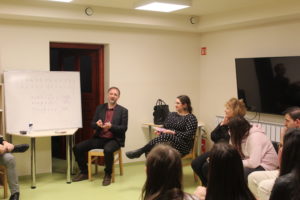
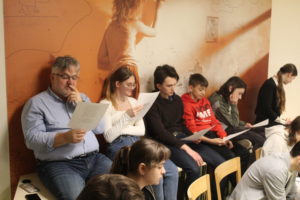
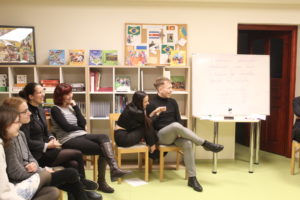
The organizers made sure that we could chat with our peers and enjoy each other’s company in an informal setting. For this purpose, we had a short excursion to a bird observatory near the Kaposvár Community House and Lake Deseda. As our walk neared its end, the sun was setting, and in a carefree atmosphere, we observed the wonderful clouds in shades of purple, yellow, and pink. Experiencing this sight with the other attendees was a special moment.
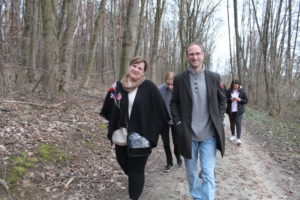
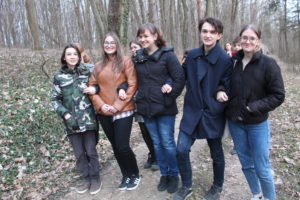
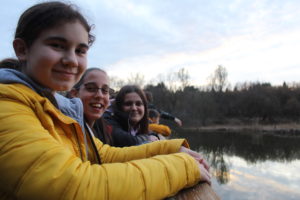
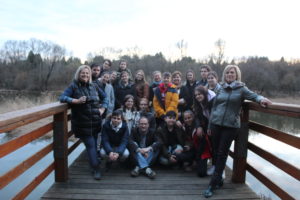
Spending time outdoors between the professional programs provided a pleasant refreshment. We concluded the second day with an extraordinary theatrical delight. Under the title “Akartok-e játszani,” Nizsai Dániel presented a multidisciplinary performance based on the works of Dezső Kosztolányi: music, puppets, and more. Along with the contestants, professional teams, and junior mentors, dear faces and family members associated with the foundation were also invited. Just like the first day, Sunday morning began with a speech technique training before the competition program. The diligent team of volunteer parents from Kaposvár treated us to delicious lunches and dinners (followed by desserts) on all three days; no one went hungry.
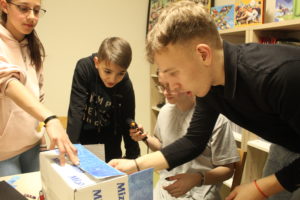
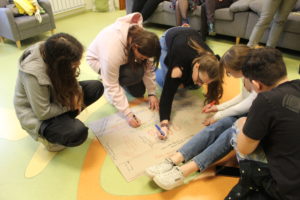
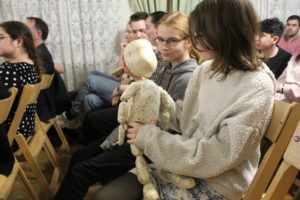
It was an honor for me to observe the events as a jury member and listen to the excellent performances. I had the opportunity to work with esteemed experts such as Török Sára, the actress from the Csiky Gergely Theater in Kaposvár, who served as the president of the jury; Dr. Péter Gombos, a reading researcher and the deputy general director of the MATE General Campus, and Papp Zoltán, a drama teacher from Pécs and the thematic leader of the Foundation’s drama section. I represented the Csányi Foundation Children’s Parliament.
On Saturday and Sunday mornings, we listened to the presentations one by one, with each contestant performing a piece each day. We could trace back from contemporary literature to the 19th century, and although most of the poems were in our mother tongue, there were also Hungarian translations of works by foreign authors.
Given that unlike my fellow jury members, I approached the topic as a hobbyist amateur, I tried to focus on the criteria that might be essential for the recitation of a poem based on the knowledge I acquired during my studies. I also considered it important for a poem to touch us because I believe that one of the essences of poetry is to evoke emotions in us. I enjoyed listening to the enthusiastic and well-prepared students; each of them demonstrated courage by simply standing in front of the audience and showing themselves through their recitations. I found myself in difficult situations several times because there were performances where certain parts appealed to me greatly, yet I had to acknowledge that other elements detracted from the value of the presentation. I had to find a balance among these factors in my evaluation. I also had to separate my subjective feelings towards the performer from the judgment process. As I mentioned during the evaluation discussion, I respect all of them because it is much harder to stand up, perform, and convey a poem than to sit among the audience, take notes, and formulate criticism. On Sunday, we had several surprises; we found out about Dr. Miklós Radoszáv, our operational director’s, sensitivity towards literature and fine arts; he has created several works in these areas. However, we only experienced him as a reciter among us for the first time.
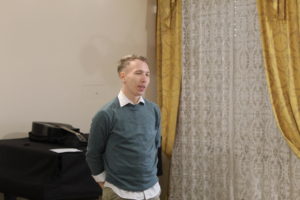
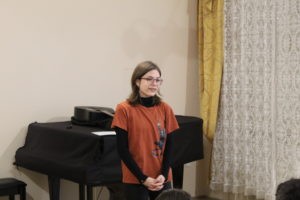
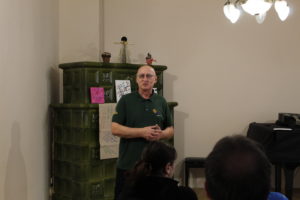
Overall, we have had a truly successful program, and I am proud to have been part of it as an organizer from Kaposvár. At the end of our article, we share some thoughts about the participants’ experiences.
“Last year’s program was enriched with numerous novelties; throughout the past year, we have raised ideas during various encounters and tossed them into the ‘idea basket.’ This excellent initiative also gave birth to the category of musicalized poems, where we had to perform an existing poetic adaptation or a poem that we had arranged with instruments. We searched for the ‘material’ for our own adaptation for a long time, deciding eventually on Babits Mihály’s “Esti dal.” Its melodiousness captured us, and during reading, melodies were born in our minds. The melody writing almost suggested itself, which, in our opinion, depended on the choice of poem, as it would have been much more difficult to rebuild a poem with a different structure and prosody into a musical world. The guitar chords were based on the tonality of the vocal melody, so the rest was only in the realization. The process was incredibly exciting, as both of us, as musicians, enjoy getting lost in this world a bit, and the realization of our own adaptation fills us with special pride. We were both extremely nervous and somewhat hesitant to take the stage, but despite this, we received a lot of positive feedback, and we feel that we presented two excellent adaptations to the audience. In the future, we would like to refine the pieces and prepare new works for the next occasion, and we would like to encourage other music lovers to this opportunity because the process itself is indeed a great experience, and making music is always a heartfelt recharge.
Sarolta Kovács-Nagy, Enikő Sármány, Kaposvár
“Thank you for the energy, vitality, and light… the sounds provided silence, and the silences gave voice to a magic that we could only experience in a completely different dimension through bringing the verses to life. I am grateful for everything.”
Lajos Nyári, Pécs
„És a vers ezen a hétvégén,
volt mosolygós és nevető
könnyes, szerető,
szerelmes, kellemes,
néha fehér, néhol fekete.
Volt mélyen a lelkünkbe nyúló,
a tudatba fúró, a szívünkig hatoló.
Volt, ami kedves, álmodozó, őszinte;
néhol csalfa, reményvesztett, megtört, s szemérmes.
Utolsó soron volt csak bronz, ezüst vagy arany,
hiszen szintekkel nem korlátozhatunk be
ily’ gyönyörű és komoly szavakat.
Felültünk egy hullámvasútra,
a karunkra felragasztottuk a szívünket, hogy mindenki láthassa.
És nem szégyelltük, hogy védtelenül megnyílunk a többiek előtt.
Mert tudtuk, hogy biztonságban lehetünk.
Torokban dobogó, fülekben dübörgő szívvel álltunk ki elszavalni verseinket,
amelyek mi voltunk magunk, egy más költő szavaival papírra vetve.
Mert ,,a vers az, amit mondani kell”. És szerintem mi elmondtuk.
Pontosan úgy, ahogyan bennünk megszületett.”
The awardees of the Verse Festival:
Gold rating
Vanessza Kovács and Milán Vajda from Nagybajom
Szilveszter Cseke from Mohács
Hanna Faragó from Szeged
Levente Sipos from Kaposvár
Silver rating
Tímea Bogdán and Evelin Buzsáki from Nagybajom
Bánk Kohári and Márkó Laurinyec from Szeged
Lajos Nyári from Pécs
Jázmin Pretz and Sarolta Kovács-Nagy from Kaposvár
Bronze rating:
Zalán Mácsai from Szentes
Emily Santos-Horváth from Mohács
Csilla Bozsóki, Fruzsina Horváth, Martina Vincze, Rebeka Völfinger from Nagybajom
Olivér Jakab, Eszter Kovács, Fanni Váradi, Viktória Weiss from Kaposvár
Sarolta Kovács-Nagy and Enikő Sármány in the musicalized verse category
